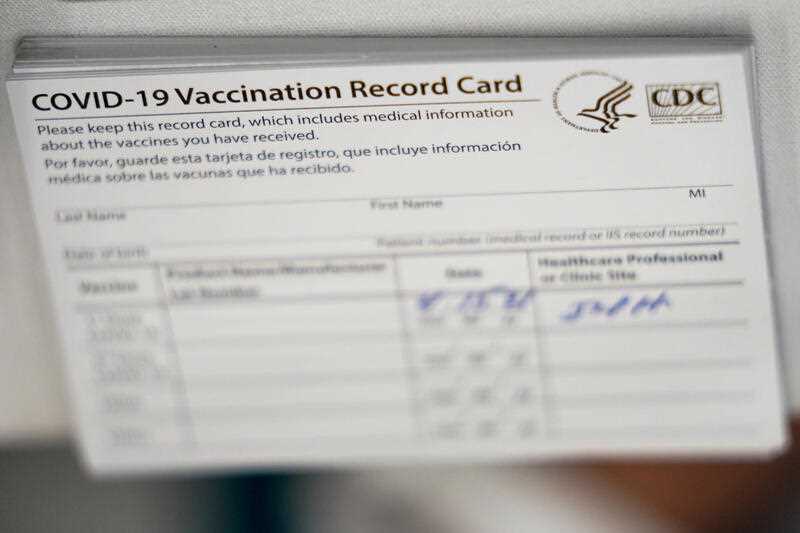Some people getting Pfizer or Moderna COVID-19 vaccines should consider waiting up to eight weeks between the first and second doses, instead of the three or four weeks previously recommended, the US Centers for Disease Control and Prevention (CDC) says.
The CDC on Tuesday quietly changed its advice on spacing the shots.
Officials said they were reacting to research showing that the longer interval can provide more enduring protection against the coronavirus.
Research suggests that 12- to 64-year-olds – especially males ages 12 to 39 – can benefit from the longer spacing, the CDC said.
They also say the longer wait may help diminish a vaccination side effect: a form of heart inflammation seen in some young men.
The change will not affect many people, coming 14 months after the beginning of the US vaccination campaign.
The CDC says 73 per cent of people age 12 and older in the US already have received two doses of vaccine.
Also, the suggestion to wait up to two months does not apply to all.
The original, shorter interval is still recommended for people with weakened immune systems; people 65 and older; and anyone who needs fast protection due to risk of severe disease.
Dr William Schaffner, a Vanderbilt University vaccines expert, said the action makes sense.
Early in the pandemic, there was intense pressure to adopt as tight a vaccination schedule as possible.
“The virus was spreading. People were dying. We wanted to get the vaccine into their arms as quickly as possible,” Schaffner said.
Based on studies done by vaccine makers, the US government authorised the Pfizer shots as a two-dose series spaced three weeks apart and the Moderna shots to be spaced four weeks apart.
Some people – mostly adolescent and young adult males – developed a side effect involving inflammation in or around the heart after the second shot.
The CDC says that among males ages 18 to 39, the condition has been reported in about 68 per one million getting the second Moderna dose and about 47 per one million getting the second Pfizer dose.
Some research has suggested that delaying the second dose until eight weeks reduces that risk, CDC officials said.
If already-vaccinated people are worried that they got less than the maximum amount of protection by getting shots according to the original schedule, they can allay those fears by getting a booster shot, Schaffner said.
“We really have very good data indicating that two doses plus the booster provide very strong protection against severe disease,” he said.
AAP
Get all the latest Canberra news, sport, entertainment, lifestyle, competitions and more delivered straight to your inbox with the Canberra Daily Daily Newsletter. Sign up here.



